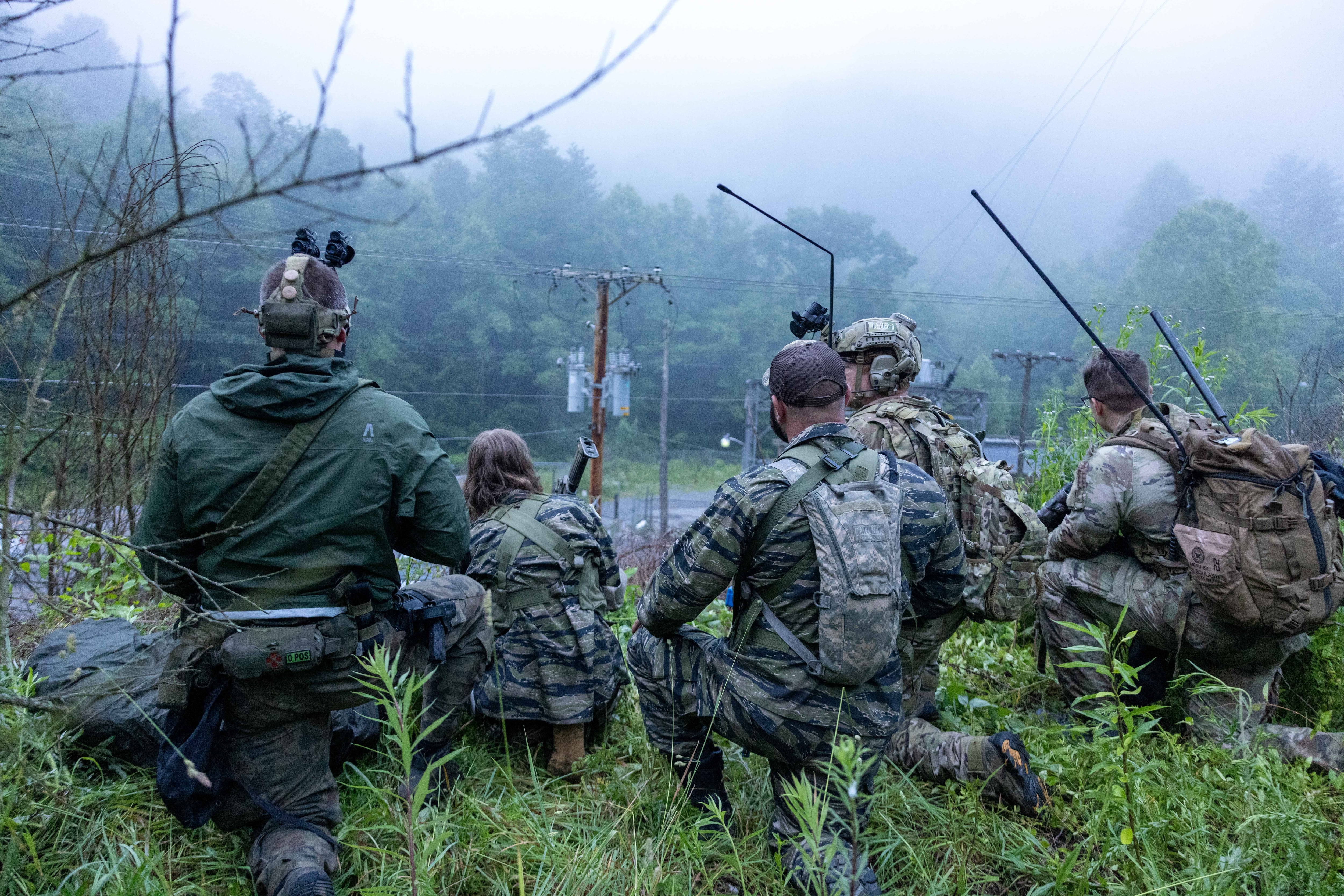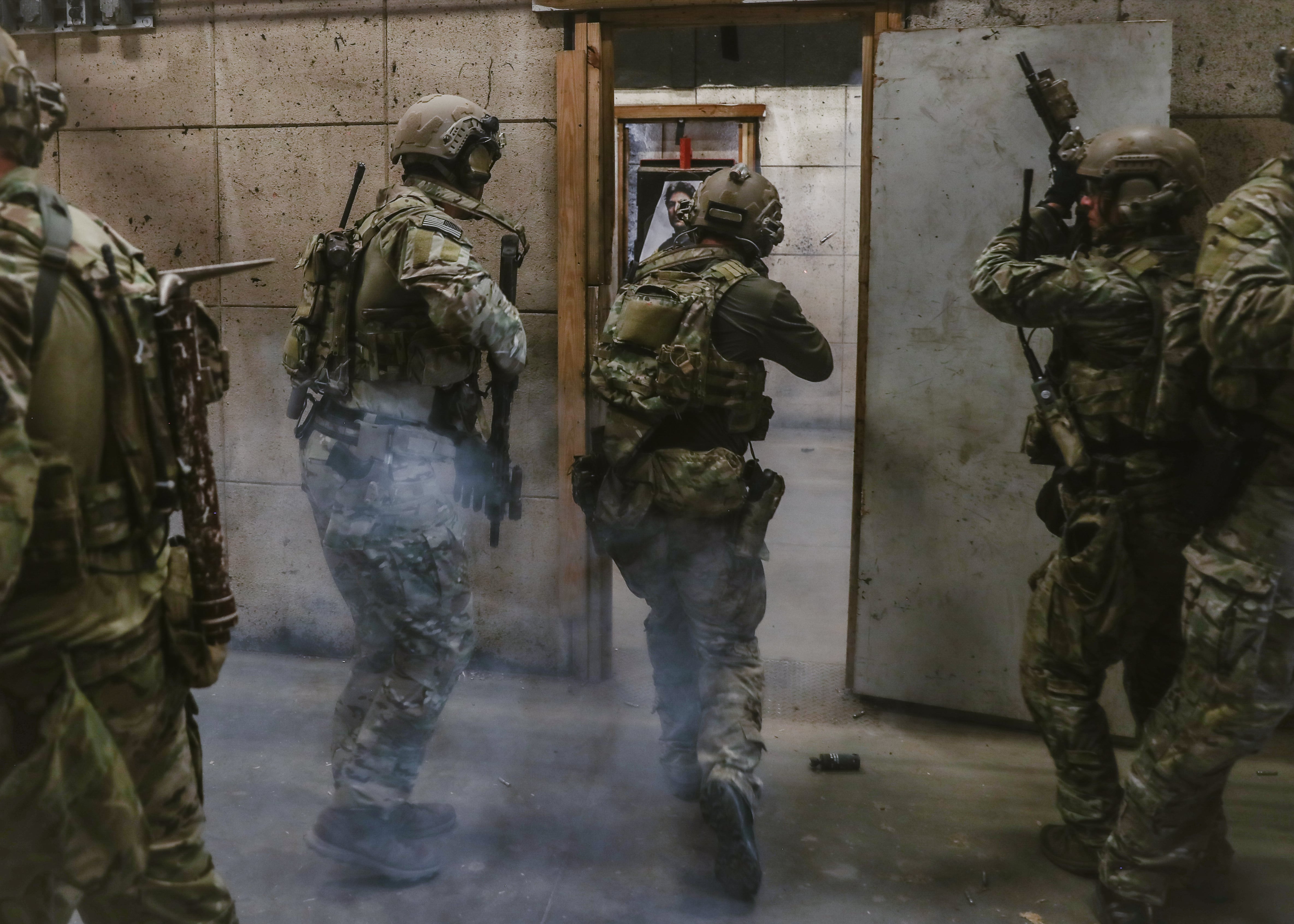The Army will cut as many as 3,000 positions in Army special operations forces despite pushback from key leaders in the SOF community and members of Congress.
“There will be cuts to Army SOF,” Chris Maier, assistant secretary of defense for special operations and low-intensity conflict said Tuesday at the National Defense Industrial Association’s 34th annual symposium on the topic. “The Army’s in a tough place, not only from recruiting … but they’re trying to transition to a different fight as we all are, and I think one of the impacts of that is requests by the Army to cut some of the Army special operations forces.”
Army Times reported in mid-October that many of the cuts would be to unfilled billets within U.S. Army Special Operations Command and would eliminate as much as 10% of the positions in that command.
RELATED

Officials at the symposium noted that many of the cuts to both positions and actual personnel will come at the expense of support and enabling jobs such as logistics, civil affairs and psychological operations, not traditional operators.
But that provided little comfort to leaders and supporters of the SOF community.
Maier noted the vital role that enablers play both in current and future operations.
“The enabler piece is often underplayed and seen as secondary but really is a huge value proposition of this community and one we’re going to need to protect,” he said. “We need to protect those high-end capabilities that’s really going to be, when we talk about hyper-enabled units that are probably not going to be the same types of units in the past that are going to exclusively have operators.”
That’s a reference to countering more sophisticated information operations, psychological operations and civil affairs needs that SOF leaders view as crucial to dealing with peer adversaries such as the Russian and Chinese militaries.
Army Times did not receive a response following a request for comment from the office of Secretary of the Army Christine Wormuth’s office.
“I’m being told, ‘oh, don’t be concerned, it’s not to the actual operators, it’s only many of the support personnel, our civil affairs, our intelligence, our logistics,” said Rep. Mike Waltz, R-Fla., in a prerecorded message played at the symposium. “Those are the people that we need to make the trains run. Those are the people that free up our operators to do what they do best. And oh, by the way they have a critical mission in their own right.”
Some of the rationale for cutting SOF, officials said, is coming from a limited view of what the force has done over the past 20 years and what its capabilities are moving forward.
Rep. Joni Ernst, R-Iowa, said that within the Pentagon SOF is seen almost as a “one-trick pony” that’s focused solely on counterterrorism.
And with the Global War On Terrorism’s end, the idea among top brass is they can now downsize the force to save money and manpower for other conventional needs, especially given the Army’s recruiting struggles in recent years.
“So, when you just simply say I’m going to cut 3,000 out of USASOC and we’re going to be fine, I don’t buy that,” Ernst said. “If we are not supporting SOF they are gradually going to fade into the background and again, once they are gone, once they are diminished, it will take time to rebuild. And we don’t have time on our hands.”
Retired Army Lt. Gen. Ken Tovo, former USASOC commander, pushed back on the idea that SOF’s only role has been counterterrorism.
“That is what the bean counters and the budgeteers are using as a narrative and a justification to try and cut the force today,” Tovo said.
The retired three-star pointed to years of SOF work that developed special operations and crisis response brigades in Iraq that led the fight to defeat the Islamic State, years-long training partnerships in the Baltic states and Ukraine alongside decades of work building partner forces in Central and South America, all of which happened as the force was heavily involved in counterterrorism post-9/11.
Some of the empty billets being cut are not empty because the capabilities are unnecessary, officials said, but because those positions can be hard to fill.
The assistant secretary said several of the unfilled positions being cut came from psychological operations positions in USASOC, “because we haven’t been able to fill some of these billets for years.”
The problem, he said, is that can create a kind of self-defeating cycle.
“If we’re not using those forces in a way that really contributes to our future and our SOF value proposition, we’re probably not going to fill those as much and then we’re in this situation where we’re not filling them as much so we’re not able to project that power,” Maier said.
Given his example, the cuts create a situation in which unfilled positions stay unfilled, so the Army must do without that tool, such as psychological operations, in the future.
The way the conventional forces interact with SOF is by working with them, in planning, exercises, training and deployment, officials said. Many of the special operations community’s contributions come before the fight, by being in the region with partners so that conventional forces have access to an area before they arrive.
“So, we really need to do a better job, chapter by chapter, of telling the role of special operations forces and why they are significant to our nation,” Ernst said.
Current reviews could shake up the force further, as Elizabeth Phu, principal deputy assistant secretary of defense for SO/LIC, explained in a three-prong approach the force is taking.
The Special Operations/Low-Intensity Conflict office is currently working on a SOF Operating Concept 2040, which would lay out what the force needs to look like, given likely risks, threats and adversaries over the next 15 years. At the same time, the office is conducting a capabilities gap assessment to identify where special operations should build certain capabilities for a future fight.
That could mean more cyber and psyops and fewer “trigger pullers” or a variety of other personnel configurations.
Once the two reviews are complete, the office will be looking at an “organizational redesign” that considers the defense department’s needs for using SOF in strategic competition, counterterrorism and crisis response, she said.
Todd South has written about crime, courts, government and the military for multiple publications since 2004 and was named a 2014 Pulitzer finalist for a co-written project on witness intimidation. Todd is a Marine veteran of the Iraq War.





